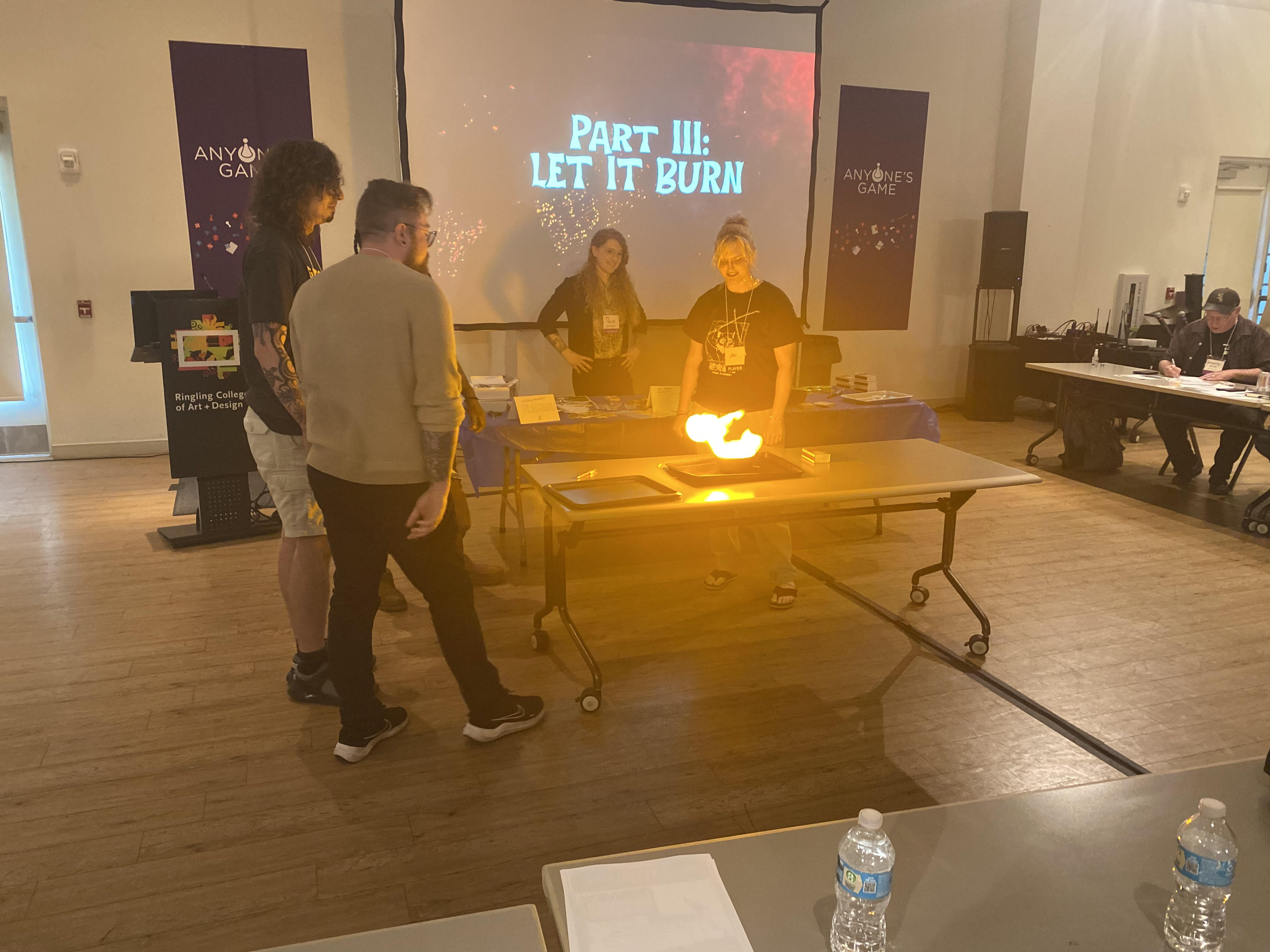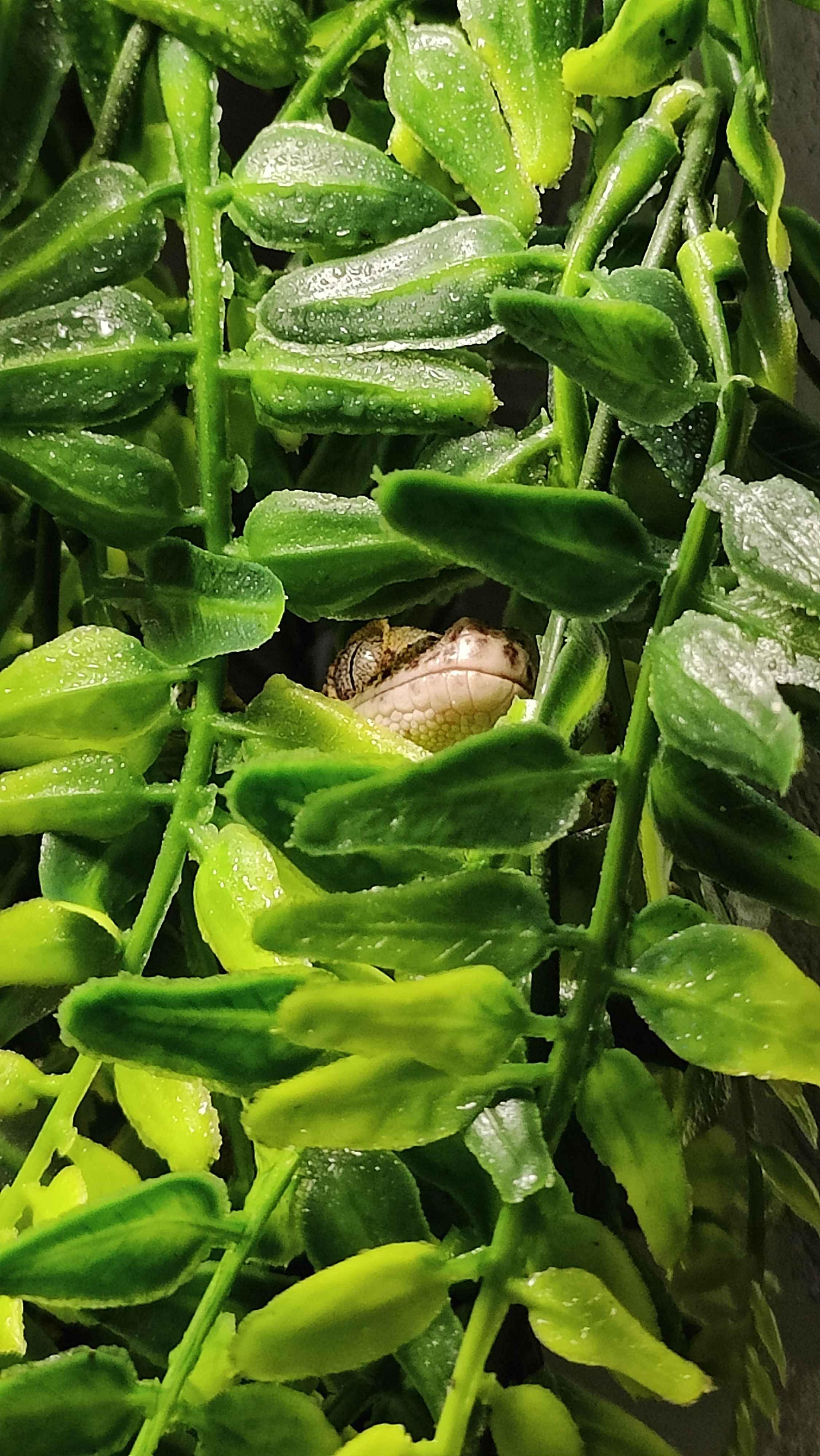Meet the newest Faculty Member: PS Berge
Marcie Whitecotton-Carroll - 4 July 2024

PS Berge, a digital scholar from the University of Central Florida has arrived to take up a tenure track position with Media and Technology Studies and is cross-appointed with Women's and Gender Studies.
We caught up with them and asked the following questions:
Could you tell us a little bit about your professional background, and what you’ve enjoyed the most about your career so far?
My background often surprises people, because while I’ve been making games since I was old enough to chew on a keyboard, I don’t come from a traditional game industry background. I have an MFA in creative writing and have been (at some point or another), a web designer, a theatre manager, a poet, and a terrible bassist in an equally terrible symphonic metalcore band. Instead, making games has been a constant throughout a rather unusual academic career; developing games for small studios was how I paid my way through undergrad. During my MFA, I was developing interactive fiction, augmented reality games, and procedural poetry projects. Fittingly, my work now spans many disciplines—critical and feminist media studies, game studies, trans studies, and the digital humanities. I like to say I put the ‘trans’ in transdisciplinarity. I’m someone who always has lots of pots on the stove, so being able to juggle a variety of projects at once keeps the work I’m doing from ever getting stale. On any given week, I might be using a scraper to collect anti-trans extremist radicalization online (whew) and the next I’ll be designing a campy roleplaying game or making glitch art with a colleague by disemboweling a videogame console and messing with the circuits.
This is the thing I love the most about what I do: I get to work with brilliant scholars, technologists, artists, programmers, writers, streamers, speedrunners, and designers. A few months ago, for example, I got to run a workshop on designing self-destructing games for a bunch of emerging game designers in Florida. I brought all manner of materials for participants to build their own self-immolating games: meeples, dice, markers, paper, cards, candles, stickers, string, and—most importantly—matches, lighters, and flash paper. (For the concerned, we had extinguishers and safety equipment on-hand.) Over the course of the afternoon, the participants created deeply personal narrative game prototypes and then set them ablaze. We learned a lot about emotional game design, played with temporality, and made huge fireballs (picture attached). That’s probably been a career highlight for me—and I’m very much looking forward to the next opportunity to blow up game conventions (as literally as possible).
What inspired you to enter this field?
I was pulled into media studies by a project that caught me off-guard early on in my graduate school experience. At the start of the “VR craze” of the early 2010s, I was developing a virtual-reality-related project for a small game company. Around this time, headlines and interviews were circulating everywhere declaring VR as the “most immersive medium” ever created. I noticed, however, that the way companies were talking about VR was deeply at odds with the actual games that were available at the time, many of which featured deliberately alienating tropes such as prompting players to use VR headsets within VR games or even kill themselves in VR. If VR was so ostensibly “immersive,” why did dozens and dozens of games rely on these emerging tropes? I was so taken with this question that I ended up seeking other researchers on campus. Eventually, I added a whole second Masters degree to my courseload and developed that project into my MA Thesis. I began presenting the work at conferences, talking to engineers and developers at game companies, and meeting academics in game and media studies who likewise were interested in experimental and alienating games. Over time, I began branching out and researching other patterns in games and media—putting my creative and technical backgrounds to work through social media research and creative coding. By the time I reached my Ph.D. program, I’d long moved on to other obsessions projects, but by then had finally found my place among other academics interested in research creation and experimental design.
Tell Us About Your Research?
I like to tell people that my research falls into two very scholarly categories: “fun things” and “not-fun things.” By fun things, I’m talking about exploring the work of trans and queer game designers, experimental design practices, self-immolating and self-destructing games, and tabletop roleplaying games. Much of my work is interested in how technology can be remade through trans feminist play—and a big part of this involves making (and breaking) games myself! By not fun things, I’m talking about examining queerphobic, white supremacist, and other extremist hate-group recruitment networks within gaming culture as well as anti-worker, anti-play, anti-player practices within the game industry. My not-fun work is very public-facing, and I’ve been fortunate to work alongside journalists, documentarians, and even social media companies to try and address extremism in digital culture.
At the moment, much of my ongoing work is focused on trans play, which is the meeting grounds for my “fun” and “not fun” research. On the one hand, we cannot have a conversation about trans liberation or trans life in my home country of the United States without confronting games and play; games—and in particular, sports—are at the epicenter of an international wave of legal, physical, and legislative violence against transgender people. At the same time, we are in the midst of an artistic reckoning as games—digital and analog—are quickly becoming one of the single most important mediums for trans storytelling, art, personal expression, and even activism. Shira Chess writes in Play like a Feminist that living and playing are entangled practices—two sides of the same coin. I, then, am seeking out trans play as a way of exploring the radical vitality of trans people and their art.
Tell us about your teaching?
I’ve often remarked that much of what I know about teaching I’ve learned from years of facilitating tabletop roleplaying games and from my time working in game design. I bring this perspective to the classroom: academic courses, much like games, require meaningful freedom for exploration. To work towards this, I often organize both my design and research courses as adventure games. Students work their way through a main questline exploring immediate course goals while choosing how to structure their research and picking up new theoretical knowledge and design skills by completing side questlines in collaborative ‘adventure parties.’ Much of the work is self-based and gives students agency in how they want to approach the class structure. This often means students will try to “game” my classes—and that’s exactly the kind of spirited participation I’m hoping to build. Whether the subject is media theory, game studies, feminist platform studies, queer and trans technology studies, or critical making, I want my classroom to be a space where students depend on and learn from each other and see the perspectives of their peers as opportunities for collaboration. Let’s build a classroom where we learn and play and make together!
What are your impressions of Edmonton/the University of Alberta so far?
While I’m settling into my new programs, I’ve been overwhelmed with how generous everyone I've met so far has been. As someone who’s deeply invested in collaboration and interdisciplinary scholarship, it’s really inspiring that nearly everyone I’ve talked with so far has been so excited to share their work and help me get involved!
I’m still brand new to Edmonton, but so far my impressions are that the board game cafes are excellent and the hares are freaking gigantic (I had no idea they could get so big!!).
What are your hobbies, or things you like to do outside of work?
Perhaps unsurprising, given my line of work, much of my free time is spent trying new games (both digital and analog) with friends and colleagues. On the roleplaying game side of things, my recent highlights include Yazeba’s Bed and Breakfast (an emotionally rich, structurally intriguing slice-of-life game about the residents of the titular B&B), Apocalypse Keys (a Hellboy-style game about monsters working for the government), and MÖRK BORG (a death-metal dungeon crawler). I’m also finally nearing the completion of a heavily-modded Baldur’s Gate III playthrough and have been spending a lot of time shiny hunting in Pokémon games.
I’m also a distance runner, so if I see you on the trails in the river valley, give me a wave! I have a wonderful hellhound who takes up much of my time and I love keeping reptiles. Otherwise, I’m always caught up in some media or art project: 3D printing miniatures, photography, painting, and playing music. Currently, that project is building a new bioactive vivarium for my gargoyle gecko (pictured below!).
